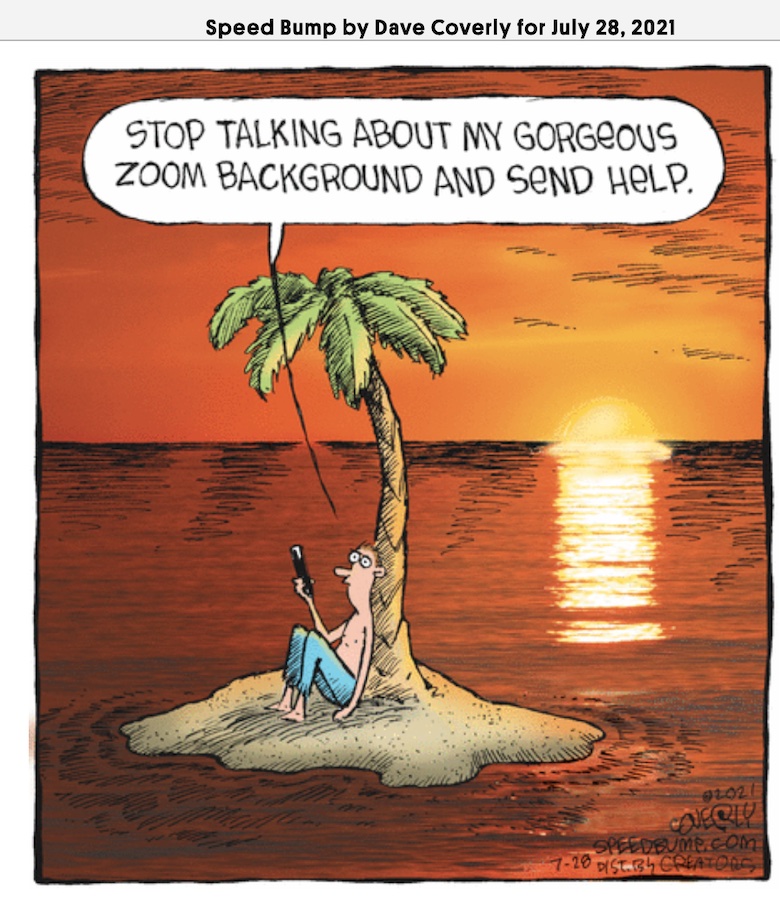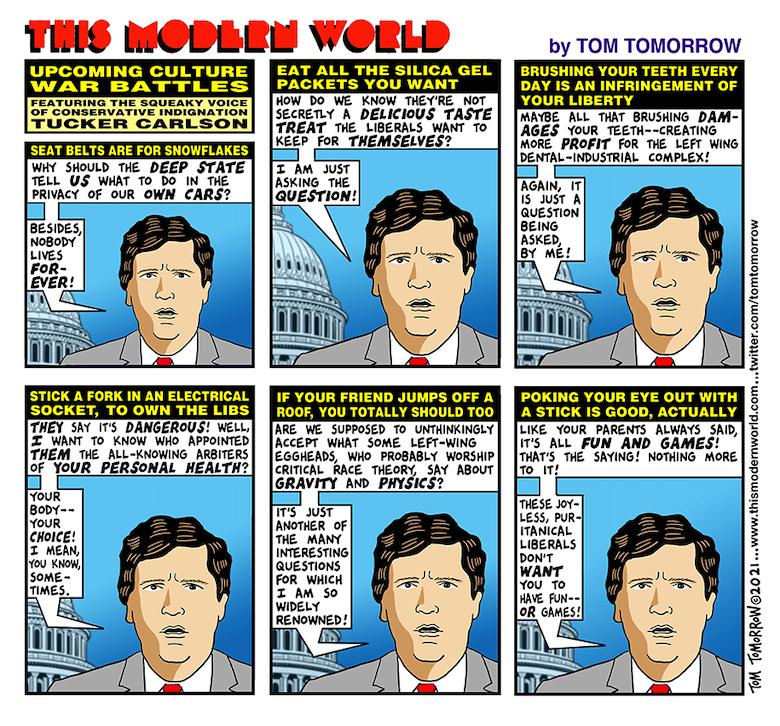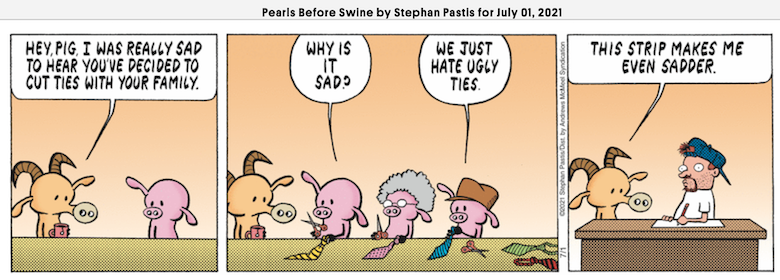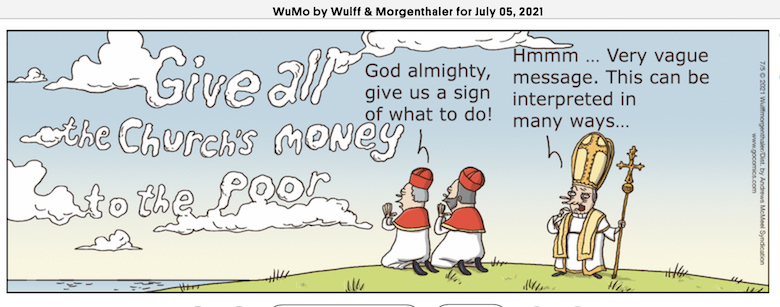In these days of Zoom meetings, I have seen people exploit the Zoom feature that allows you to use their stock backgrounds and also allows you to create your own to create the most exotic and even bizarre backgrounds. I myself, being the old fuddy-duddy that I am, use just the boring but real background of my living room.





